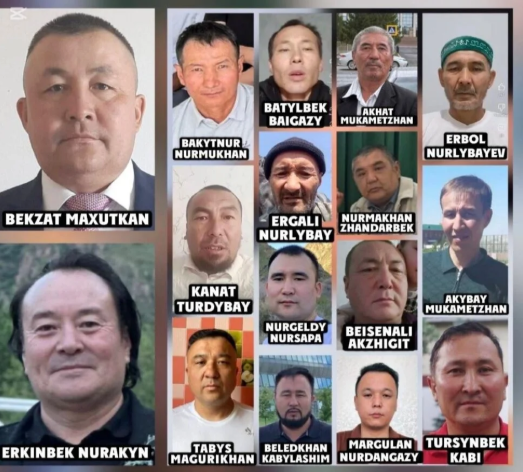Pakistan-India: When Religion is Both the Target and the Scapegoat
- info775148
- 24. 6.
- Minut čtení: 4
Current and past events show Pakistani security forces’ direct and indirect involvement in attacks on Hindu and Sikh temples.
June 24, 2025
A few Hindu and Sikh temples in India came under Pakistani attack during the latest armed conflict between the two Asian rivals, when in May India launched Operation Sindoor targeting terrorist groups responsible for the deadly April assault against tourists near Pahalgam, a town in the Anantnag district of the Indian state of Jammu and Kashmir. The violence against temples revived the memories of how Pakistani agencies were directly or indirectly responsible for assaults on religious sites in the past. The Pakistani army, paramilitary forces, and police have often been blamed for either attacking temples or being complicit in desecrating them.
Pakistani Army’s brutal repression of human rights during the 1971 liberation movement that gave birth to Bangladesh amidst a horrible genocide saw several temples being vandalized. It targeted several Hindu temples, notably Ramna Kali Temple. Even Pakistan’s own investigation through the Hamoodur Rahman Commission pointed the finger at its military’s conduct. Gary J. Bass, the then US Counsel in Dhaka, wrote in his book “The Blood Telegram: Nixon, Kissinger, and a Forgotten Genocide” (New York: Knopf, 2013) that the Pakistani Army did not randomly kill—they methodically slaughtered Hindus and obliterated their temples and homes.
The Pakistani Army still resorts to such practice. The recent conflict with India reportedly exhibited it. India’s External Affairs Secretary Vikram Misri blamed Pakistan’s Army for deliberately targeting religious sites in India. “We have seen Pakistan targeting and shelling places of worship with a particular design. This includes gurdwaras, convents, and temples. This is a new low even for Pakistan,” he said. “The gurdwara in Poonch, in particular, was attacked by Pakistan, and some local members of the Sikh community lost their lives in this incident.”
Indian forces claimed that the attack on the Golden Temple, the most sacred site for the Sikh community, by the Pakistan Army was countered. “Pakistan carried out a massive air assault with unmanned aerial weapons. We were fully prepared since we had anticipated this, and our alert Army Air Defence gunners shot down all drones and missiles targeted at the Golden Temple. Thus, not allowing even a scratch to come on our holy Golden Temple,” said Major General Kartik C Seshadri.
In 2020, Gurdwara Janam Asthan, where the first Guru of the Sikhs, Guru Nanak Dev, was born, located in Pakistan, was attacked as a mob laid siege, threw stones, and shouted anti-Sikh slogans. Meanwhile, the police did not act. “It is also unclear why law enforcement did not intervene to lift the siege of the gurdwara in a timely manner. It is unacceptable that a mob could besiege the gurdwara, and brazenly make threats against the Sikh community,” said Tejinder Singh Sidhu, President of World Sikh Organization.

In 2021, Pakistani police and military came under scrutiny for failing to respond to an SOS call made by the Hindu community after a mob attacked the Ganesh temple in Bhong city of Rahim Yar Khan district. “At 1 pm, we called the district police officer, district administration, and even the military for help, but nobody came to our rescue till 4 pm. By that time, the mob had ransacked the temple and were leaving the area, chanting slogans,” said a victim from the Hindu community, who requested anonymity.
Dr Ramesh Vankwani, former Member of Pakistan’s National Assembly, said the situation became tense after the vandalism, which led to the deployment of paramilitary forces in the area. “Negligence by local police is very shameful. Chief Justice is requested to take action,” he declared on X, commenting on a video of the incidents. The Supreme Court of Pakistan also expressed displeasure over the police’s failure to safeguard the temple. As the then Chief Justice of Pakistan, Gulzar Ahmed, said. The assault brought shame to the country, as police acted like silent spectators.
A mob of 15,000 people led by an Islamic cleric vandalised and set fire to the Krishna Dwara Mandir in Khyber Pakhtunkhwa’s Karak district in 2020. While the local administration claimed that the mob went out of control, the eyewitnesses, however, blamed the police for their inaction since they did not intervene when the temple was being destroyed. Sharing a video of the assault on the temple, senior journalist Mubashir Zaidi said, “Police and administration remained silent spectators.”
After the video of the destruction went viral, police arrested a few, even as their complicity became clearer. “In the video of the attack, the administration (local) stares unflinchingly as the crowd dismantles the temple. What justice is this?” said Gopal Kamuany, chairman of Pakistan’s Hindu Council. Naveed Walter, president of Human Rights Focus Pakistan (HRFP), an NGO based in Faisalabad, Pakistan, said attacks on religious sites of minority communities continued to happen as the responsible agencies did nothing to stop them. “Even the role of the police is the same: quiet and silent,” he stated.
Source: bitterwinter.org










Komentáře